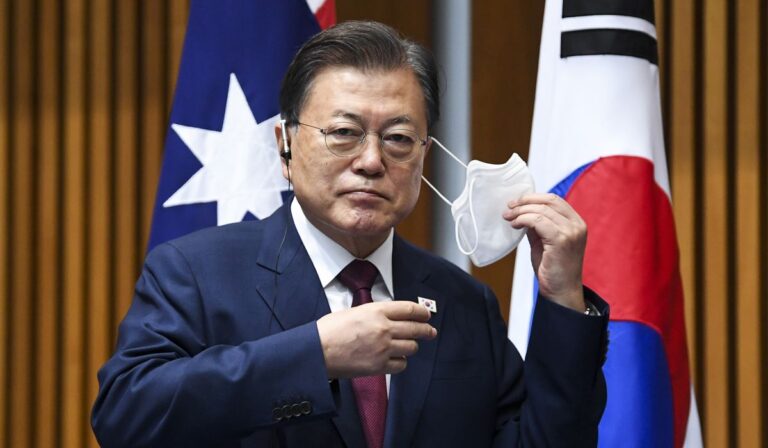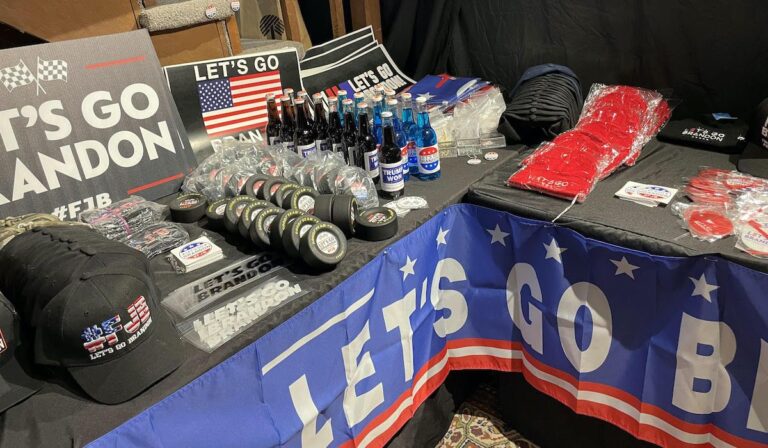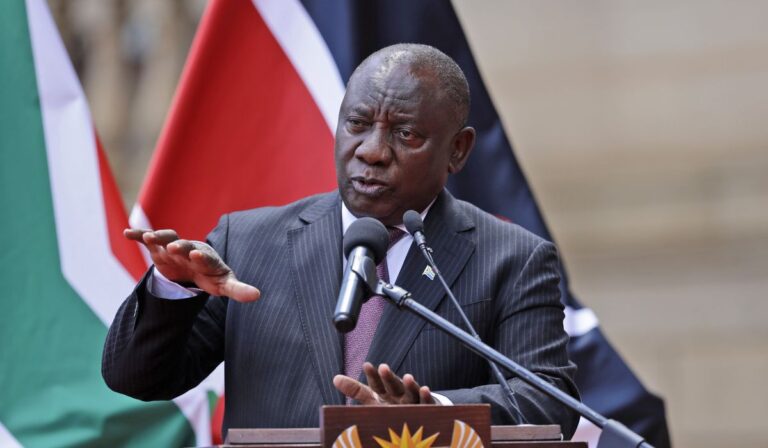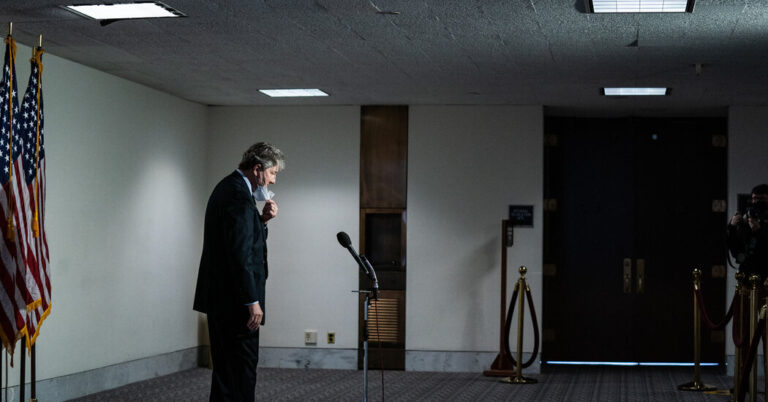First “Let’s go Brandon” was a chant, then it became a hit song, and now the anti-Biden rallying cry has given rise to a chain of stores in New England.
Let’s Go Brandon retail outlets have popped up in seven locations just in time for the holiday season, offering T-shirts, hats, hoodies, mugs, magnets, stickers, flags and other merchandise inspired by the viral political euphemism.
The seven shops — six in Massachusetts, one in Rhode Island — are the brainchild of Keith Lambert, founder of New England for Trump, who said the stores are resonating with customers eager to tout their opposition to President Biden.
“Sales are very good. We’ve got a lot of support. There’s a lot of excitement,” Mr. Lambert told The Washington Times. “People absolutely love coming out. Being in the atmosphere of a store, it’s a lot of fun.”
Mr. Lambert has experience in politically themed retail: He previously owned 22 New England for Trump stores, a business he started in 2019, but shut down many of them after President Donald Trump’s 2020 election defeat.
Two months ago, he said his customers began asking for Brandon-themed items, referring to the slogan spurred by an NBC reporter who mistakenly said that an Oct. 2 NASCAR crowd chanting “F—- Joe Biden” was actually saying “Let’s go, Brandon,” a reference to winning driver Brandon Brown.
That gave Mr. Lambert an idea: retool his New England for Trump shops to ride the Brandon wave.
“We rebranded a couple of the stores as Let’s Go Brandon, and it was really popular, and so I opened up a new store [in North Attleboro], a Let’s Go Brandon, and everybody kind of went crazy,” Mr. Lambert said.
He now has Massachusetts locations in North Attleboro, Somerset, Bellingham, Easton, Hanson and East Bridgewater, as well as a shop across the state line in Warwick, Rhode Island.
“A couple of them are [temporary] holiday stores, but we have core stores that have been open for a few years that we’re going to keep going,” Mr. Lambert said.
Not everybody is a fan. Some commenters on social media have taken issue with the coded Biden insult, calling it rude and uncivil.
“You have a lot of nerve saying God Bless you when you are disrespecting the president of the USA,” said one Massachusetts critic on Facebook.
After the community media outlet Patch ran a story about the new locations, one commenter responded, “Great! Now I know where not to go.”
Mr. Lambert said the stores have met with “a little pushback from the local crazies,” but for the most part, the response has been positive.
“Honestly, it’s America,” he said. “We’re supposed to be free, we’re supposed to have freedom of speech, we’re supposed to be able to open for business. If somebody opened a business that was the Joe Biden store, I might laugh, but that would be it. I’m not going to try to get them to shut down.”
Also thriving is the Let’s Go Brandon online shop. After a segment about the stores aired last week on Newsmax, the website at nefortrump.com was overwhelmed with traffic.
“We’ve hired a bunch of people, probably about 12 to 15 people,” Mr. Lambert said. “For the most part, everybody’s happy, and it’s bringing people into the area.”
All Brandon, all the time
The emergence of Let’s Go Brandon retail outlets comes as the phenomenon moves beyond sports to the worlds of music, food, fashion, and even competitive boat-decorating.
A vessel festooned with lights spelling out “Let’s Go Brandon” and “FJB” won the annual Yorktown Lighted Boat Parade contest Dec. 4 in Virginia, but the ship was later disqualified for displaying a political message.
“My boat was best in show to the crowd,” Bill Berger, the boat’s captain, told WAVY-TV in Norfolk. “They had the awards ceremony, and they presented me winning the best in show, and 48 hours later, I got the phone call I was disqualified. They said my boat was too political.”
The Yorktown Foundation issued an apology and promised to clarify its rules, explaining that it was required to steer clear of politics to maintain its status as a 501c3 nonprofit organization.
“To all the spectators in Yorktown on Saturday night, we apologize about the disruption to the holiday festivities, and we especially apologize to our family and friends in attendance that may have had to explain to their children the political nature of the message,” the foundation said in a Dec. 8 post on Facebook.
Songs with Brandon themes have become hits. In the last six weeks, rap songs by two different artists, Loza Alexander and Bryson Gray, have each reached the No. 1 spot on the iTunes U.S.A. music chart.
Rep. Lauren Boebert, Colorado Republican, wore a red dress inscribed with “Let’s go Brandon” last month in a meeting with Mr. Trump, taking a swipe at the “Tax the Rich” dress worn by Rep. Alexandria Ocasio-Cortez, New York Democrat, in September at the Met Gala.
“It’s not a phrase, it’s a movement,” Ms. Boebert tweeted.
Florida-based Solorzano’s Pizzeria drew headlines last month for offering pizzas with “FJB” and “LGB” spelled out in pepperoni. In Minnesota, Palubicki’s Family Market, known for its decorated bakery items, added a “Let’s Go, Brandon” cookie to its line-up in November, according to news reports.
Even Mr. Trump has jumped on the bandwagon. His Donald Trump online store now sells hats and T-shirts with the “Let’s Go, Brandon” catchphrase, calling it “the most popular chant on the planet.”
Online retailers like Amazon and Etsy also offer no shortage of LGB merchandise, but Walmart removed last month a third-party seller of “Let’s go, Brandon” items in what may be a harbinger of a Brandon backlash.
The company prohibits selling products that are “explicit, obscene, derogatory, etc.” on its website.
“Like other major online retailers, we operate an online marketplace that allows outside third-party sellers to offer merchandise to customers through our eCommerce platform,” Walmart told Insider. “We have reviewed these third-party marketplace products and they will be removed because they do not comply with our policies.”
The golf company Titleist has reportedly blocked sales of golf balls printed with the “Let’s go, Brandon” message.
White House press secretary Jen Psaki dismissed the “Let’s go, Brandon” sensation at a Nov. 12 press conference, saying Mr. Biden isn’t concerned.
“I don’t think he spends much time focused on it or thinking about it,” she said.
• Jacob Calvin Meyer contributed to this report.




















